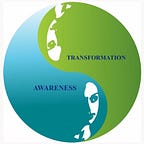Personal Growth & Psychology of Development.
According to Maslow’s higher archery of need, there are 5 stages of development are as follow; physiological needs, safety, love and belonging, esteem and self-actualization.
The basic human need of survival must be satisfied must be satisfied before individuals can attend to higher needs or reach their highest potential — self-actualization. The basic human needs are shelter, food, water, safety, and security.
The social & Emotional need: Love, belonging and self-esteem are needs associated with our social identity. Belonging to a certain group of people, accepted in the faith community — political or religious institutions satisfy our social-emotional needs. Seeking other people approval and validity. Seeking status, career and recognition are important at this stage of development. People spend many years in attaining to their social-emotional needs that sometimes they get stuck in this stage of life, rather than progressing towards the path of self-development, awareness, and self-actualization.
Inability to Thrive:
What keeps us stuck at various stages of life; challenges such as failure to meet basic human needs. Negative Life experiences such as divorce, loss of a job, the death of a loved one all such issues rob us of our ability to thrive and succeed. These issues of life lead to psychological and emotional trauma cause stress, anxiety and depression and the inability to move forward towards personal progress on a psychological level until resolved. Some of these issues are not associated with chemical imbalances in the brain or qualify as mental health illness that needs to be treated through medication but the inability to reconcile with the existential crisis of life.
The cause of suffering can be the biological imbalance in the brain, but some are caused by existential challenges. Psychological affliction can be treated with 1) reflection, 2) self-awareness 3) reconciliation with challenging life issues.
Existential Issues:
Existential issues are associated with DIFM- Death, Isolation, Freedom, and Meaninglessness, existing for the sake of existing.
Death: Death is an inevitable reality of life. Fear of death and inability to reconcile with death leads to depression, anxiety, sadness to an extent that it people who suffer from such anxiety are unable to seek pleasure in life, everything seems meaningless and effect positive function in life. Theology and spirituality provide a solution to eschatology, such as the afterlife, the purpose of life and meaningful existence. A healthy fear of death & limitation of time is not completely useless, it encourages one to live life fully, engage in a meaningful work and use time wisely. Facing these issues
Isolation: Existential isolation is a realization that one is alone in life and responsible for his/ her own choices. No one else can take responsibility for our actions, thoughts, and behavior. The process of psychological development and path of self-discovery is a path within. This path of self-discovery leads to spiritual exploration, self-acceptance, reliance, self-awareness and finally self-actualization so we can attain our highest potential. To face our fears is a personal and individual battle. Existential isolation should not be feared but accepted wholeheartedly. Isolation helps us discover a meaning and purpose we assign to our existence. People escape from isolation and seek conformity, which is not beneficial for personal growth and psychological development. Cultural conformity is an escape from reality, inability to face the fear of isolation and to discover one’s self (authentic self).
Freedom: Freedom is desired in every aspect of life but with freedom comes greater responsibility, accountability, and acceptance of consequences good or bad. Taking responsibility for one’s life and life of others. Impacting others in a positive and negative way-actions leads to desirable and undesirable consequences. Acceptance of consequences make people fearful, they run away from taking responsibility because they don’t want to feel guilty of causing harm. Freedom is a paradox, we are not given unlimited freedom neither we are completely free. Freedom is not free of cost. It is an illusion that demands our undivided attention, authentic existence, discovering self and assign meaning to our earthly existence.
Meaninglessness: Assigning meaning to life can be the very personal and individualized process, which can only be reached after battling existential issues, such as freedom, suffering isolation and finding a path of self-realization. This process requires psychological development, progressing and passing through various stages of the developmental process until one reach to spiritual maturity. Confronting life is not an easy task, it requires self-knowledge, commitment, dedication and courage to face challenges of life. Then only you can answer the following questions; what you are passionate about? what demands your energy? what makes you feel good about spending your entire life in a cause? What cause is worth spending a lifetime. What is the aim of your life? what are you willing to risk for it? All these answers may vary from person to person.
Conclusion: Inability to reconcile with life issues and facing an existential crisis can cause psychological distortion and leads to depression, anxiety, and emotional disorder. Therefore, not all life issues are associated with chemical imbalances in the brain or mental health illness that need to be treated. The human mind is capable of reaching self-actualization, seeking personal wellbeing and commit to stages of development.
At Transformation Life Coaching you are not alone to face such challenges. Let me know if I can help you thrive and assist you in the process of self-development.
TLC Approach & Results — Transformation Life Coaching sessions provide training and service to those students who are invested in their own wellbeing and development process. I have integrated the science of well-being, more than 18 years of experience teaching, leading, counseling, mentoring, guiding students and professionals from various ethnic and educational background, such as the psychologist, social workers, IT technicians, Medical students, nurses and healthcare professionals. I have blended spiritual counseling experience, positive psychology intervention, and existential practitioner training to help my clients achieve positive results that brings transformation.
